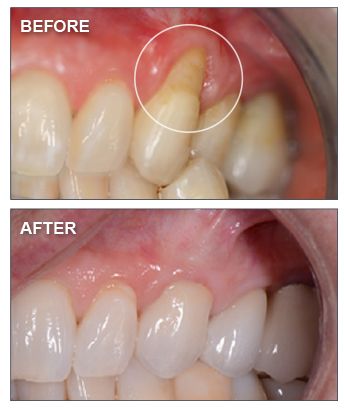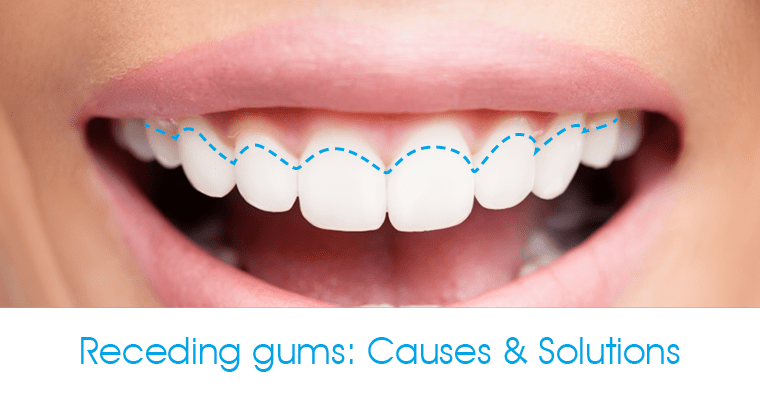
The most common cause of Receding Gums is a buildup of plaque and food remnants between the teeth and gums. When left untreated, this buildup can lead to gum disease. The most effective treatment for receding and sagging gummy smiles is to get regular dental cleanings and floss your teeth at least twice a day. Flossing also stimulates blood circulation in the gums and promotes the growth of new tissue.
There are several causes of receding gums, including improper dental care and hormonal changes. The best way to address the problem is to see your dentist at least once a year. A professional cleaning can remove tartar and plaque, which can cause your gums to recede. Getting a cleaning can help reverse the process and restore your healthy gums. It is important to see your dentist regularly for a thorough examination to find out what is causing your recession.
In addition to gum disease, another common cause is brushing too hard. Excessive scrubbing of teeth can contribute to receding gums. Too much brushing can cause the soft tissue to be damaged and eventually lead to gum disease, which can lead to tooth loss. To prevent this from happening, use a soft-bristled toothbrush and gently massaging your gums. In many cases, this will be enough to prevent a periodontal condition.
There are multiple ways to treat gum recession, and a professional can help you find the most effective treatment for your needs. The best mouthwash for receding gums is a combination of professional dental treatment. Dr. Gareth Edwards is a highly trained, experienced dentist who has been practicing dentistry for over twenty years. His specialties include orthodontics and minimally invasive dentistry, and he is certified in Invisalign.
The most effective treatment for receding gums involves dental grafting. This procedure is an effective way to restore a natural, healthy gum line. Regardless of the cause, it is important to maintain good oral hygiene at home. For example, brushing at least twice a day and flossing once a day is essential. Avoid aggressive brushing, and always use a soft-bristled toothbrush.

Fortunately, there are treatments for receding gums. By practicing good oral hygiene, you can prevent or treat the condition. If you are not willing to undergo treatment, consider gum surgery. It will help you improve your appearance and confidence. If you have experienced this problem in the past, it is important to visit your dentist as soon as possible. If the symptoms continue, the treatment can be very expensive. It is essential to get professional dental care as soon as possible.
Inconsistent dental hygiene is a major cause of receding gums. Not only does bad oral hygiene lead to periodontal disease, but it also increases the risk of other issues related to gum health. Generally, poor oral hygiene is the leading cause of this problem, but genetics can also play a role. Even though the most common cause of this condition is gum recession, it is a result of many factors, including age and genetics.
The most common inflammatory cause of gum recession is a genetic predisposition to gum disease. Although inherited genes can influence the risk of developing gum disease, it is still possible to develop the disease if you do not follow the recommended practices. Your dentist may prescribe various treatments for gum recession. In addition to taking care of the roots of the teeth, it is also possible to restore the tissue around the teeth.
While many factors can lead to gum recession, the best way to stop the condition is to eat a nutritious diet and avoid tobacco products. Smoking and chewing tobacco can also contribute to gum recession, so it’s best to quit smoking right away. Keeping your gums healthy is essential for self-confidence. By following the advice given on the health website carlostorre.org.mx, you will also find the perfect remedy for gum recession.
You should contact your dentist as soon as you notice any of the above symptoms. In some cases, receding gums can be a symptom of periodontitis. In other cases, the condition may be a sign of anatomical or mechanical causes, but the most common cause is lack of personal dental care. People with receding gums may also have chronic bad breath.